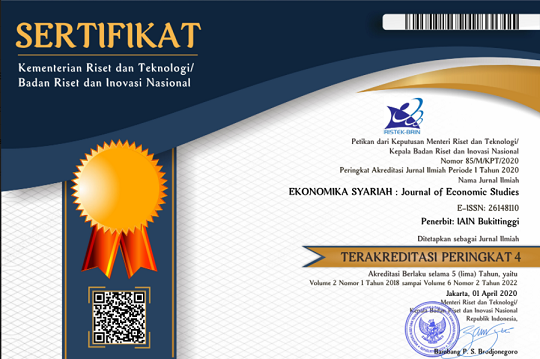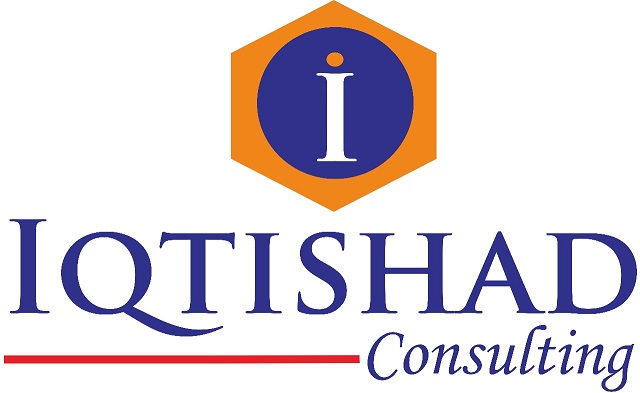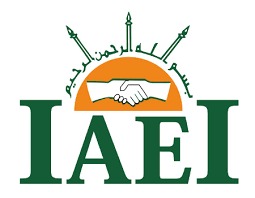PENERAPAN TEORI ORGANISASI Z UNTUK MEMPERBAIKI KINERJA BMT AGAM MADANI DI KABUPATEN AGAM
DOI:
https://doi.org/10.30983/es.v1i2.425Abstract
To empower the people's economy, the government of Agam Regency has established BMT (Baitul Maal Wattamwil) in every nagari in Agam Regency. Nevertheless, currently BMT Agam Madani can be said to be quiescence. This study aims to audit the application of Z Organization Theory on BMT Agam Madani. Furthermore, this study aims to formulate strategies to improve the performance of BMT Agam Madani by using Organizational Theory Z. The approach used is qualitative. The Data were collected through survey, questionnaire, and indeep interview. For the data analysis, descriptive statistics are used, in the form of frequency, percentage and average on the characteristics of informants and graded scale 5. The research results show that BMT Agam Madani has done enough principles of Z organization theory, which is marked by the mean score the opinion of the informant 3.8, which means agree with the informant's opinion statement about the implementation of Z organization theory. However, the principle of retaining people who are skeptif has not been implemented by BMT Agam Madani, as evidenced by the average score of informants who only 2.2. Untuk memberdayakan ekonomi masyarakat, pemerintah Kabupaten Agam, telah membentuk BMT (Baitul Maal Wattamwil) pada setiap nagari di Kabutaten Agam. Namun demikian, saat ini BMT Agam Madani dapat dikatakan mati suri. Penelitian ini bertujuan untuk mengaudit tingkat penerapan Teori Organisasi Z pada BMT Agam Madani. Selanjutnya penelitian ini bertujuan merumuskan strategi meningkatkan kinerja BMT Agam Madani dengan menggunakan Teori Organisasi Z. Pendekatan yang digunakan adalah kualitatif. Data dikumpulkan melalui survey, kuesioner, dan indeep interview. Untuk analisis data digunakan statistik deskriptif, berupa frekuensi, prosentase dan rata-rata terhadap terhadap karakteristik informan dan skala likert bergradasi 5. Hasil penelitian menunjukan bahwa BMT Agam Madani telah cukup melaksanakan prinsip-prinsip teori organisasi Z, yang ditandai dengan nilai skor rata-rata pendapat informan 3,8, yang berarti setuju dengan pernyataan pendapat informan tentang pelaksanaan teori organisasi Z. Namun, prinsip mempertahankan orang yang bersifat skeptif belum dilaksanakan oleh BMT Agam Madani, yang dibuktikan dengan skor rata-rata pendapat informannya yang hanya 2,2.References
Adnan, Muhammad Akhyar and Shochrul Rohmatul Ajija. (2015). “The effectiveness of Baitul Maal waat Tamwil in reducing povertyâ€: The case of Indonesian Islamic Microfinance Institution, Humanomics Vol. 31 No. 2, 2015, pp. 160-182.
Asyari (2016). BMT Agam Madani, Apa Kabarmu Kini? http://kampus.iain.bukittinggi.ac.id/index.php/kompoen/k2/item/285-bmt-agam-madani-apa-kabar-mu-kini, diakses tanggal 2 Nopember 2017.
Aydin, Oya Tamtekin. (20120. The Impact of Theory X, Theory Y and Theory Z on Research Performance: An Empirical Study from A Turkish University, International Journal of Advances in Management and Economics, Vol.1 | Issue 5, PP. 24-30.
Cokro, Widiyanto B. Mislan and Abdul Ghafar B. Ismail .(2008). Sustainability of BMT Financing for Developing Micro-enterprises, Article Draft, Februari 2008.
Damayanti, Nurul Farida Dan Sri Herianingrum. (2014). Pengaruh Pembiayaan Dana Baitul Maal Wat Tamwil (Bmt) Teladan Terhadap Kinerja Usaha Mikro Di Pasar Semolowaru Surabaya, Jestt Vol. 1 No. 3 Maret 2014.
Mulyaningrum. (2009). Baitul mal wat Tamwil: Peluang dan Tantangan dalam Pengembangan Lembaga Keuangan Mikro Syariah, Seminar on Islamic Finance, Bakrie School of Management (BSM) & Universiti Kebangsaan Malaysia (UKM), January 6, 2009.
Ouchi, W. G. (1981). Theory Z: How American Business Can Meet the Japanese Challenge. Reading, MA: Addison-Wesley.
Pangaribuan, Emmy (2007), Perusahaan Kelompok (Group Company/Concern), Yogyakarta: Universitas Gajah Mada.
Parashar, Brajesh Kumar. (2016). Significance of Theory Z in Indian Scenario, International Journal of Management and Social Sciences Research (IJMSSR) ISSN: 2319, Volume 5, No. 2, February 2016, pp. 8-16.
Pholpuntin, S., etc, (2014)“ Analysis of TOWS Matrix for Promoting Thai Kitchen into ASEAN Markets of Lao People’s Democratic Republic and Socialist Kingdom of Cambodiaâ€, Universal Journal of Industrial Business and Management, 2 (7).
Indriantoro, Nur & Supomo, Bambang (2002). Metodologi Penelitiaan Bisnis untuk Akuntansi dan Manajemen, Edisi 1, BPFE, Yogyakarta.
Kajian Akuntansi dan Manajemen Islamai FSI FEUI. (2008). Perkembangan dan Prospek Baitul Maal wat Tamwil (BMT),http://kiamifsifeui.wordpress.com/2008/04/ diakses tanggal 12 Mei 2016.
Lunenburg, Fred C. (2011). Organizational Culture-Performance Relationships: Views of Excellence and Theory Z, National Forum of Educational Administration and Supervision Journal Volume 29, Number 4, 2011, pp.1-10.
Ridwan, Muhammad, 2004, Manajemen Baitul Maal Waat Tamwil (BMT), UII Press: Yogyakarta.
Sekaran, Uma .(2000). Research Method For Business, USA, John, Wiley & Son, Inc.
Shafritz, Jay M. & Ott, J. Steven. (1996). Classics of Organization Theory, Fourth edition. Belmont: Wadsworth Pub. Co.
https://id.wikipedia.org/wiki/Kategori:Kecamatan_di_Kabupaten_Agam, diakses tanggal 31 Maret 2016.
http://www.kompasiana.com/sangpemenangpembelajar/bmt-agam-madani-bagaimana nasibmu- kini_552a5e06f17e61d277d62465, diakses tanggal 31 Maret 2016.
Downloads
Submitted
Accepted
Published
Issue
Section
License
Authors who publish with this journal agree to the following terms:
- Authors retain copyright and grant the journal right of first publication with the work simultaneously licensed under a Creative Commons Attribution-ShareAlike 4.0 International License that allows others to share the work with an acknowledgment of the work's authorship and initial publication in this journal.
- Authors are able to enter into separate, additional contractual arrangements for the non-exclusive distribution of the journal's published version of the work (e.g., post it to an institutional repository or publish it in a book), with an acknowledgment of its initial publication in this journal.
- Authors are permitted and encouraged to post their work online (e.g., in institutional repositories or on their website) prior to and during the submission process, as it can lead to productive exchanges, as well as earlier and greater citation of published work (See The Effect of Open Access).













